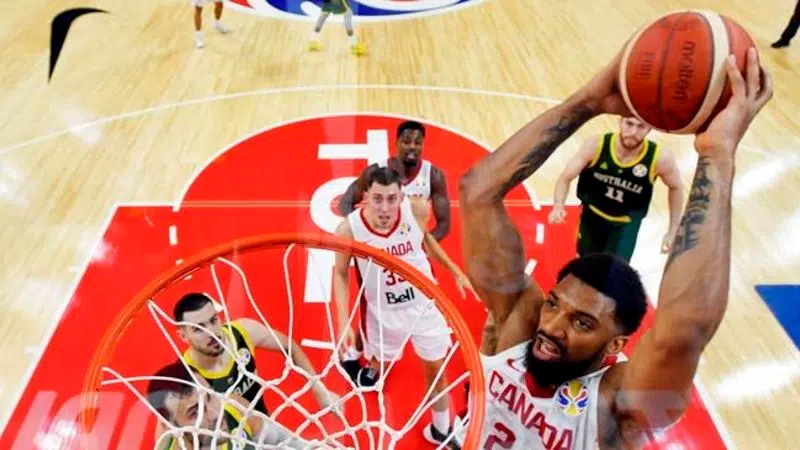
Canada drops 108-92 decision to Australia in FIBA World Cup opener
DONGGUAN, China — Nick Nurse had said Canada would need to play extraordinary basketball to survive at the FIBA World Cup — missing most of its biggest stars, and playing in arguably the toughest group in the global tournament, nothing less would be good enough.
The overmatched Canadians played an extraordinary third quarter in their World Cup opener against Australia on Sunday, but the Aussies responded with an even better fourth. And now Canada faces a mammoth task to reach the second round after a 108-92 loss.
Khem Birch scored 18 points, while Cory Joseph added 16 to lead the 23rd-ranked Canadians, who roared back from a 17-point deficit in the third quarter only to fall apart in the fourth.
“We had some extraordinary moments tonight,” Nurse said. “We’ve just got to stretch them out a little bit and go from there.”
